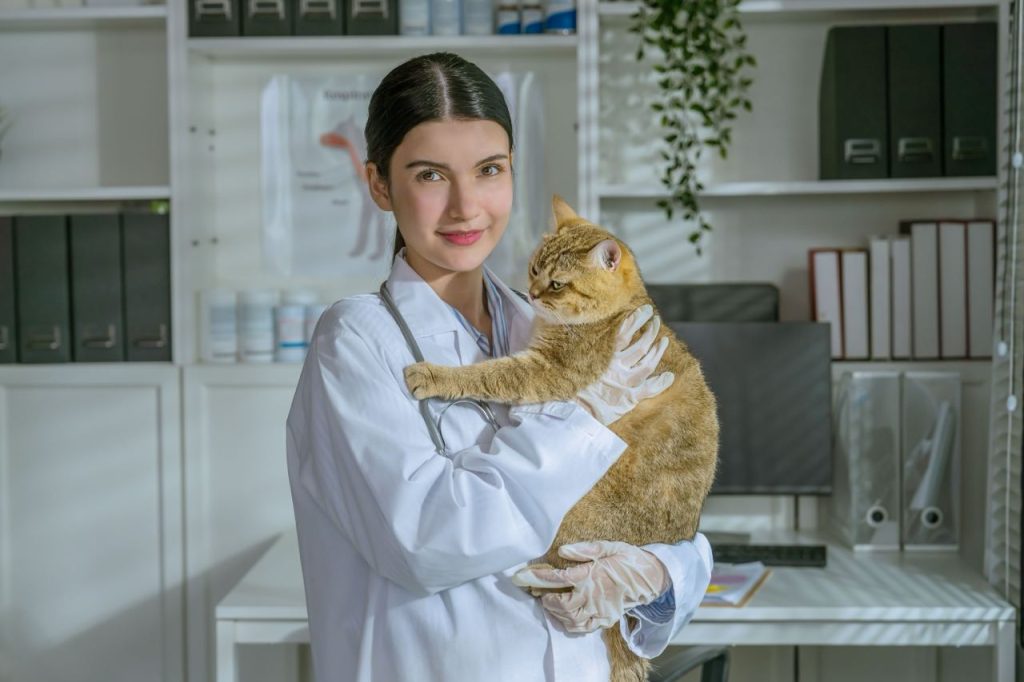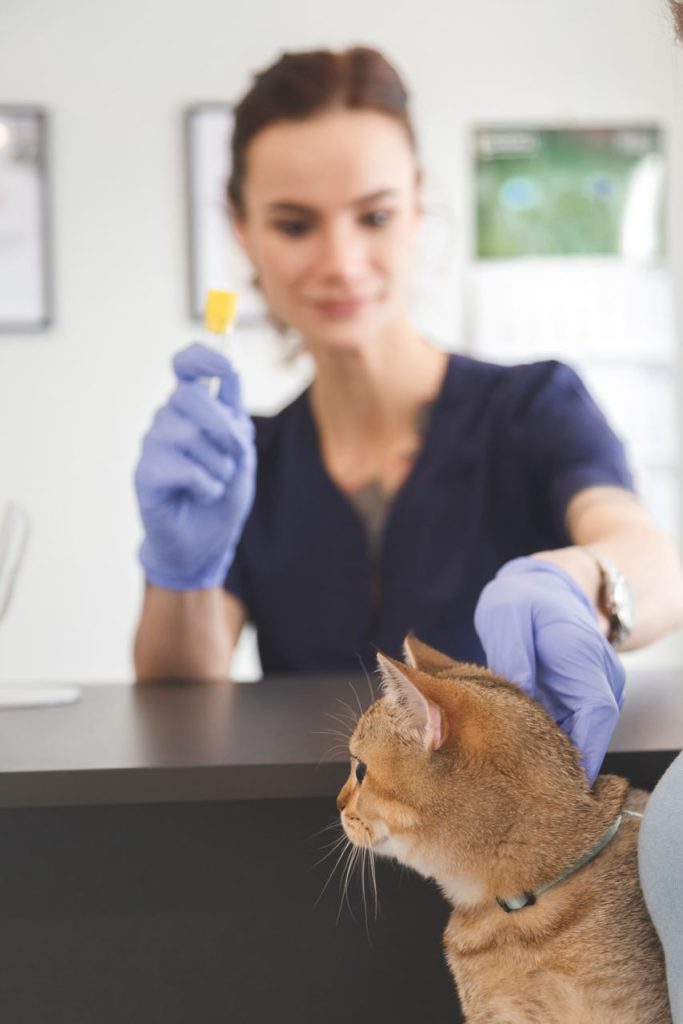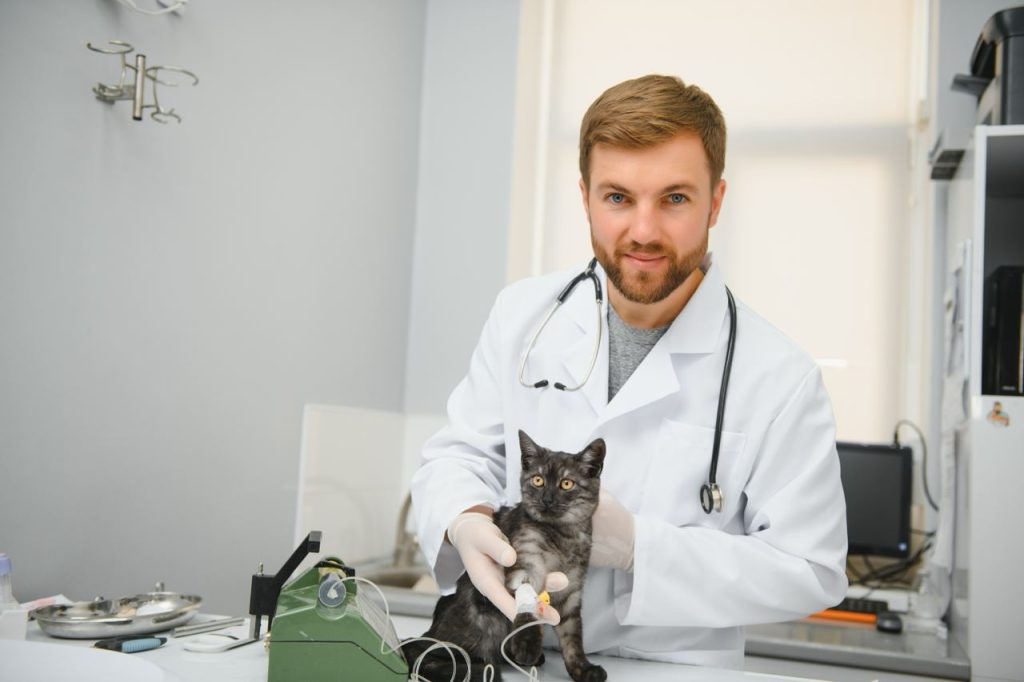As a cat owner, it is understandable that you worry about the health of your furry companion. Sometimes you need to go to the vet to check a cat’s health.
Blood tests are a common test to do this. But what is the cost of blood testing in a cat and what exactly does it entail?
The cost of blood tests in a cat can vary. It depends on the tests and rates of the veterinary practice. Below is an overview of the average cost of blood tests in a cat:
| Research | Rate (in euros) |
|---|---|
| Blood collection and processing | € 29,00 |
| Basic blood test | Vanaf € 21,50 |
| Thyroid test | € 47,50 |
| Extended blood test | € 125,00 |
| FeLV and FIV test (cat leukemia and cat aids) | € 66,50 |
| Parvo test (dog and cat) | € 59,00 |
The rates do not include the veterinary consultation, and the basic blood test starts from €21.50, while the comprehensive blood test is the most expensive with a rate of €125.00. Please note that these rates may vary depending on the veterinarian practice and any additional costs. It is always advisable to discuss in advance with the veterinarian what tests are needed and what the exact cost will be.
Let’s take a closer look at the different aspects of blood testing and the associated costs.
Why does a cat need a comprehensive blood test?
A blood test for cats checks your pet’s health. It includes several tests to assess this. This can include blood tests, complete blood counts and specific tests for organs such as kidneys and thyroid.
Thyroid blood tests.
An overactive thyroid gland, also known as hyperthyroidism, is a common problem in older cats. A blood test can help diagnose thyroid problems and start appropriate treatment.
Kidney blood tests
Kidney problems are not uncommon in cats, especially older cats. A blood test can find kidney problems in your cat. The test can also check kidney function.
Geriatric Blood Test
Geriatric blood testing, focuses specifically on older cats and often includes more extensive testing to detect age-related health problems.

What are the steps for blood testing a cat?
A cat’s blood test involves several steps, from preparing your cat to analyzing the blood samples obtained. Here are the general steps involved in a cat’s blood test:
1. Preparation of the cat (fasted stomach)
Before the blood is drawn, the veterinarian will often examine your cat to make sure he or she is in good health and suitable for the blood test.
Depending on the specific tests being performed, your cat may need to be sober before the blood is drawn. This means your cat will not be allowed to eat any food for a certain period of time. The veterinarian will inform you about this if necessary.
2. Blood Collection
After your cat is prepared, the veterinarian will look for a suitable vein to draw blood. This is usually done with a needle and syringe.
Taking blood from cats can be tricky because of their smaller veins and sensitive nature. It can help if your cat is calm and well held during the procedure.

3. Collection of blood samples
Different types of blood samples are collected depending on the tests being performed. These may include whole blood, serum and plasma.
The veterinarian will carefully collect the amount of blood needed for the tests. This will ensure that the samples are labeled correctly.
4. Transportation to the laboratory
After the blood samples are collected, they are carefully packaged and transported to the laboratory for analysis.
It is important that the blood samples are handled correctly to ensure accurate results.
5. Analysis of blood samples
In the laboratory, blood samples are analyzed using specialized equipment and techniques.
Different tests are performed on the blood samples depending on the health problems to be checked or ruled out.
6. Interpretation of the values from the blood test
Once the analyses are completed, the results will be interpreted by the veterinarian.
The veterinarian will compare the results to normal values. This allows the veterinarian to identify any abnormalities that may indicate health problems.
This can range from blood glucose and kidney function tests to liver enzymes and electrolytes.
7. Blood test results
The results of the blood test are usually known within 1 to 3 (working) days. The veterinarian will then discuss the results of the blood test with you. With these results, any further steps can be recommended, such as treatments or additional tests.
By following these steps, your cat’s blood test can be done effectively to assess your pet’s health and detect any medical problems early.

Saving on the cost of a cat blood test
If you want to protect your cat from unexpected medical expenses, consider getting cat insurance. Through our website, you can compare different options and choose an insurance policy that suits you and your cat.
By planning ahead and having your cat checked regularly by a veterinarian, you can ensure the health and well-being of your beloved pet. Blood tests can be a valuable tool in detecting health problems and promoting a long and happy life for your cat.











